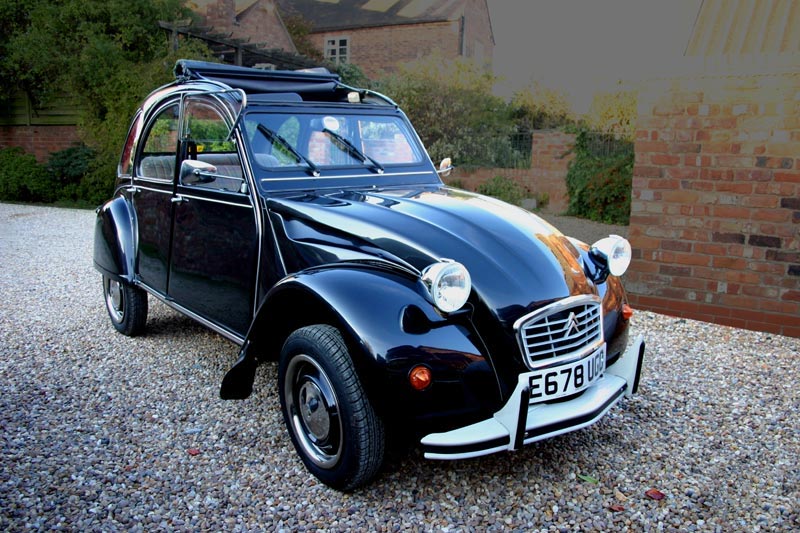Numerous European countries have rolled out target years in which they plan to ban the sale of new cars powered by internal-combustion engines.
At the same time, many European cities have introduced car-free zones in highly congested or polluted areas—which has led to worries that collector-car owners would be left on the sidelines as more of these bans take effect.
Now a new study from the European Commission has urged that collector cars be exempted from any emission and engine bans, and from car-free zones.
DON'T MISS: UK to ban diesel, gasoline car sales by 2040; follows France, Norway, Holland bans
The study, completed by consultants Isinnova and Price Waterhouse & Cooper (via Hemmings Motor News), looked at current and future bans over two years and concluded countries should exempt emergency, construction, diplomatic, and collector vehicles from the bans.
It gave a variety of reasons, depending on the category of vehicle.
For collector cars, the study cites the vehicles' low usage since they are usually not driven on a daily basis. it concludes that collector-car owners would be "disproportionately penalized," especially if they reside in urban areas.
1969 MGB roadster
The study's recommendations also protect businesses that service collector cars, because "no retrofitting possibilities exist."
In general, the study cites collector cars' importance to history and the "preservation of motoring heritage."
In the European Union, laws define collector cars as models that are 30 years or older and no longer in production.
READ THIS: All cars with engines to be off Dutch roads by 2030, following 2025 sales ban
Additionally, a collector car must be “historically preserved and maintained in its original state.”
Thus far, some countries with low-emission zones and traffic bans have already implemented exemptions for collector cars, notably in Germany, Sweden, the Czech Republic, and the United Kingdom.
Paris also made an exemption to its old-car ban for collector cars as well, preserving the livelihood of small businesses that give tours of the city in aging Citroen 2CVs.

Citroen 2CV
The intent of most European countries' bans on fossil-fuel-powered cars has always been to apply only to future new cars sold, not used vehicles as well.
And politics have interceded, with an initial plan by The Netherlands for a 2025 ban on new cars with an internal-combustion engine now finalized for 2030.
CHECK OUT: California mulls ban on new cars with engines, joining China in climate action
Thus far, North American collectors haven't faced these types of bans, though a bill will be introduced in the California Legislature in January that would ban the sale of new cars powered by an internal-combustion engine.
The European Commission study's recommendations are non-binding, but policymakers throughout the EU will take its findings into consideration as they craft future regulations.
_______________________________________












